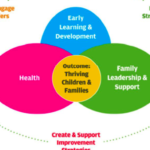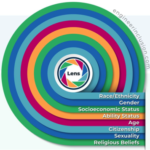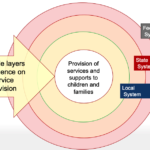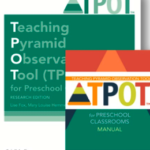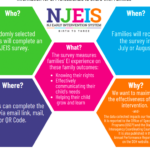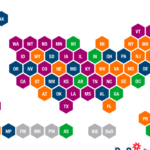Many folks have been engaged in equity work at a personal and professional level. But what does it mean to have an equitable system? This session focused on how to intentionally include equity in your system through the indicators of quality in the revised ECTA/ DaSy System Framework. We shared how to use data at the leadership level to inform policy development, and provide opportunity to dig deep to identify needs, priorities, and opportunities for action at both the state and local level within your own system.
System Improvement for Equitable Access, Experiences and Outcomes
